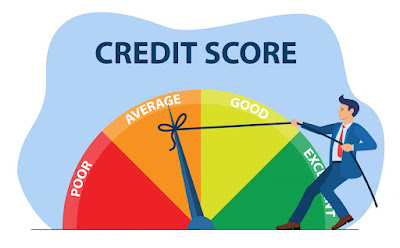Maintaining a Healthy Credit Score: 8 Tips and Strategies.
Your credit score is a vital component of your financial well-being.
1. Understand the Basics of Credit Scores
Borrowers in this range have a good credit history but may have some issues, such as late payments or high balances.
Borrowers in this range have a poor credit history and are considered risky by lenders.
It affects your ability to secure loans, rent an apartment, and even get a job.
Maintaining a healthy credit score is crucial for financial stability and future opportunities.
In this article, we will explore effective strategies to help you maintain a healthy credit score.
1. Understand the Basics of Credit Scores
To effectively maintain a healthy credit score, it's crucial to understand the fundamentals.
Credit scores are numerical representations of your creditworthiness, ranging from 300 to 850 in the FICO scoring system.
Here are the credit score ranges and what they mean:
- Exceptional/Excellent: 800 to 850 (FICO) or 781 to 850 (Vantage Score).
Borrowers in this range have the best chances of getting approved for loans and credit cards and getting the lowest interest rates.
- Very Good/Good: 740 to 799 (FICO) or 661 to 780 (Vantage Score).
Borrowers in this range have a solid credit history and are likely to qualify for most loans and credit cards and get favorable interest rates.
- Good/Fair: 670 to 739 (FICO) or 601 to 660 (Vantage Score).
They may qualify for some loans and credit cards, but not all, and may pay higher interest rates than those with better scores.
- Fair/Poor: 580 to 669 (FICO) or 500 to 600 (Vantage Score).
They may have trouble getting approved for loans and credit cards, and if they do, they will pay very high interest rates and fees.
- Very Poor: 300 to 579 (FICO) or 300 to 499 (Vantage Score).
Borrowers in this range have a very bad credit history and are likely to be rejected by most lenders.
They may need to rely on alternative forms of credit, such as secured cards or payday loans, which are very expensive and can worsen their financial situation.
Factors that influence your credit score include payment history, credit utilization, length of credit history, credit mix, and new credit inquiries.
2. Pay Your Bills on Time
One of the most critical factors affecting your credit score is your payment history.
Late payments can significantly damage your creditworthiness.
Make it a priority to pay all your bills, including credit card payments, loans, and utility bills, on time.
Consider setting up automatic payments or reminders to ensure you never miss a payment.
3. Manage Your Credit Utilization Ratio
Your credit utilization ratio measures the amount of credit you use compared to your total available credit.It's recommended to keep your credit utilization below 30% to maintain a healthy credit score.
For example, if you have a total credit limit of $10,000, aim to keep your outstanding balance below $3,000.
Regularly review your credit card statements and make efforts to pay down balances to improve your credit utilization ratio.
4. Maintain a Diverse Credit Mix
Credit mix refers to the different types of credit accounts you have, such as credit cards, auto loans, mortgages, or personal loans.Having a diverse credit mix can positively impact your credit score, demonstrating your ability to manage different types of credit responsibly.
However, only apply for credit when you need it, as excessive credit applications can negatively impact your score.
5. Regularly Check Your Credit Reports
Monitoring your credit reports is vital to ensure accuracy and detect any fraudulent activities.Obtain free annual credit reports from each of the three major credit bureaus—Equifax, Experian, and TransUnion or respective credit reference bureaus of your country—and review them for errors or discrepancies.
If you find any inaccuracies, promptly dispute them to have them corrected.
6. Avoid Closing Old Credit Accounts
Closing old credit accounts may seem like a good idea to simplify your financial life.However, it can harm your credit score.
Length of credit history is an essential factor in calculating credit scores.
Keeping old accounts open, especially those with a positive payment history, can positively impact your creditworthiness.
7. Limit New Credit Applications
While it's important to have a diverse credit mix, avoid applying for multiple credit accounts within a short period.Each time you apply for credit, it results in a hard inquiry on your credit report, which can temporarily lower your credit score.
Be strategic and apply only when necessary.
8. Use Credit Responsibly
Maintaining a healthy credit score is not just about avoiding mistakes; it's also about using credit responsibly.Make timely payments, keep your balances low, and only borrow what you can afford to repay.
Responsible credit behavior over time will reflect positively on your credit score.
Conclusion
A healthy credit score is a valuable asset that opens doors to financial opportunities.By understanding the key factors that influence your credit score and implementing the tips outlined in this article, you can maintain a healthy credit score and pave the way for a strong financial future.
Remember, building and maintaining good credit takes time and discipline, but the rewards are worth it.
If you don't take good care of your credit, then your credit won't take good care of you. ― Tyler Gregory












